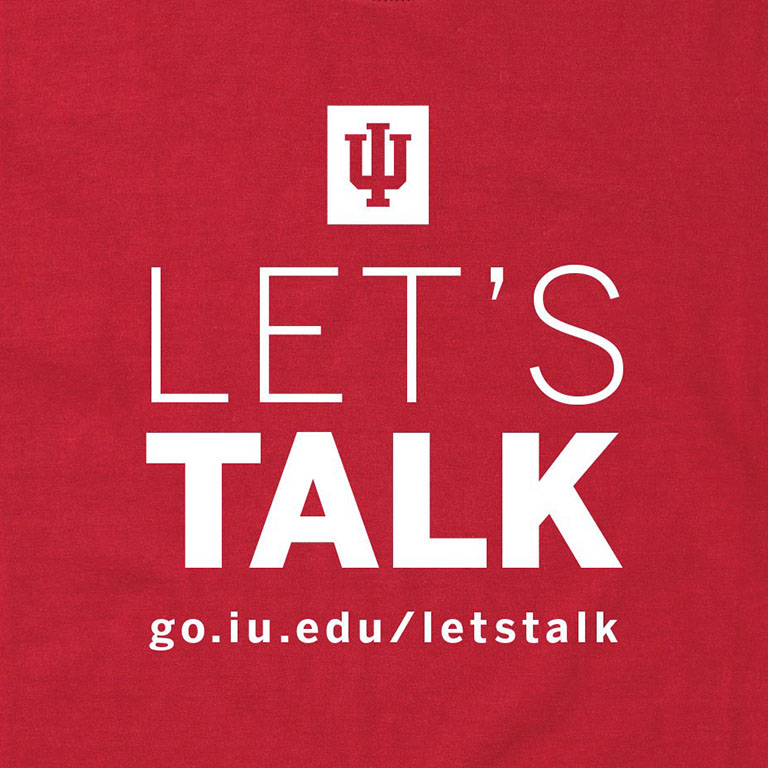After partnering last year with the IU Jacobs School of Music, The Indiana University Health Center’s Counseling and Psychological Services is again expanding its services with new counselors in campus cultural centers, the Office of International Services and the School of Public and Environmental Affairs.
Starting this week, the center is offering a two-part program — Let’s Talk Now and Let’s Keep Talking – which will offer both informal and formal counseling services to students at the Asian Culture Center, First Nations Educational and Cultural Center, La Casa, Neal-Marshall Black Culture Center and the Office of International Services.
IU’s Gay, Lesbian, Bisexual and Transgender Student Support Services Office will continue similar service it has been providing through the School of Education.
Let’s Talk Now will serve as a pre-counseling service, providing a free, confidential and informal opportunity to students who want to speak with a consultant about any concerns or issues they are having and to connect with campus resources.
Students in need of a more formal conversation can take part in Let’s Keep Talking, which will provide professional counselors who can address more complex issues. Both take place within the cultural centers and the Office of International Services.
“Let’s Talk lowers barriers to counseling, especially for multicultural students who might be hesitant to seek it elsewhere,” said Nancy Stockton, director of Counseling and Psychological Services. “This two-part program gives students an alternative to going to the Health Center itself, directing them to more convenient locations to chat informally — and possibly formally — about problems the students experience.”
Let’s Talk is loosely based on Cornell University and Gannett Health Services Counseling and Psychological Services’ program of the same name. The program is made up of a diverse group of consultants and counselors from the School of Education’s Department of Counseling and Educational Psychology, who rotate annually under the supervision of Paul Toth, a staff psychologist with Counseling and Psychological Services.
“This initiative is especially important for traditionally underserved student populations,” said Muhammad Saahir, a counselor and program coordinator at Counseling and Psychological Services who will be based at the Neal-Marshall Center and First Nations. “The services we now offer to our campus excite me as a clinician, as we literally meet people where they are.”
Additional formal counselors include Wei-Cheng “Wilson” Hsiao, based at the Asian Culture Center and Office of International Services; Shelena Davis, based in Neal-Marshall Black Cultural Center and Luciana Guardini, based in the Office of International Services and La Casa.
“Feeling connected to others is a key aspect in emotional healing. It helps us bounce back from adversity,” said Guardini. “Let’s Talk is a great opportunity to cultivate and strengthen connections between the students and our services. This presence in the cultural centers will facilitate access to a safe and confidential space for students to build the connections needed to thrive and succeed.”
Last year, The Health Center piloted a counselor in academic residence program at the IU Jacobs School of Music, placing a counselor in the school 20 hours a week. Compared to the same time period the prior year, the number of Jacobs’ students seeking help increased 54 percent, according to Grogg.
“Based on both feedback and utilization, this program pilot has been very successful,” said Pete Grogg, executive director of the IU Health Center. “Jacobs’ faculty and administrators believe that this program has met its goal of early problem identification and intervention. The on-site availability of this service has also had a significant impact on utilization of mental health resources.”
This year’s program at SPEA will be similar in format and aims to reach students who may not feel comfortable seeking initial services at the Health Center. Chris Ann Meno, coordinator of outreach and consultation at CAPS, will serve as the counselor in academic residence at SPEA.
“We’re pleased to be able to offer this new opportunity for our undergraduate and graduate students to get the assistance they need to stand strong in the face of all the challenges and stresses associated with college life,” said R.J. Woodring, director of undergraduate programs office at SPEA. “We’re a healthier community thanks to Meno and CAPS.”


